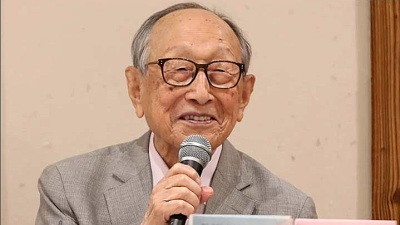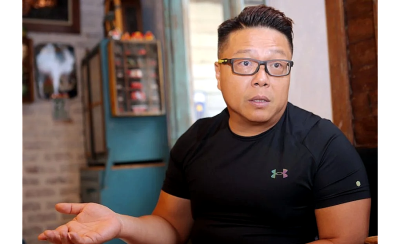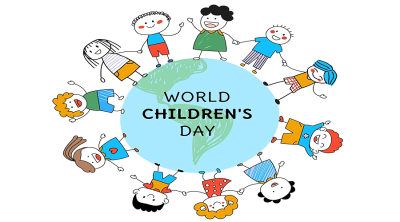Most Singaporeans can count on one hand the number of people they have uttered those three words to.
In reserved and action-oriented Singapore, where a plate of cut fruit or “Are you hungry?” often stands in for tender words, verbal expressions of love do not come naturally.
This reluctance to articulate love is a subject of many local satirical TikTok videos.
A recent Chinese New Year video drew more than three million views for poking fun at how Singaporean parents do not say “I love you”, but things like “I see you like this drink a lot, so I buy a lot”.
Local forums on online networks like Reddit proliferate with posts such as “Singaporeans who aren’t affectionate with your family, how else do you show that you care?”, revealing that many here are actively seeking an alternative love language.
This lived experience feels out of step with the Singaporean media diet, as suggested by the Top 10 Netflix lists of shows here, usually dominated by sappy K-dramas, American romcoms and reality dating shows, an alternate universe where love is proclaimed freely.
Is there a disconnect between what people say and do, and what they really want deep inside? To find out, in the lead-up to Valentine’s Day, The Straits Times spoke to eight love, relationship and family experts and academics here.
For starters, is there a social and emotional cost to withholding love verbally? Experts think there is.
Over half of the 2,356 Singapore residents surveyed reported feeling isolated from others either some of the time or often. Those who feel they lack companionship form an even larger group, with over 70 per cent of those aged 21 to 34 saying they lack it either some of the time or often.
This is not unique to Singapore. A Gallup survey spanning 140 countries conducted in 2023 found that nearly one in four people worldwide feel very or fairly lonely.
That same year, the World Health Organisation designated loneliness as a “global public health concern”, noting that social isolation is associated with negative health outcomes such as dementia and stroke.
In Singapore, these feelings of loneliness also play out against a backdrop of generational shifts in giving and receiving love and understanding what it means to be loved.
Ms Theresa Pong, counselling director at counselling centre The Relationship Room, is seeing a trend of Singaporeans becoming increasingly aware of their emotional needs – and determined not to repeat the shortfalls of the traditional, often authoritarian, parenting they received.
Instead, many young parents she works with now favour “gentle parenting”, which focuses on forging relationships and connections with their children.
“They know that they have been growing up in families with very traditional relationships, where you can’t go to your parents to talk about vulnerable things. They want to break that cycle, so that the next generation is able to show affection and connect on a deeper emotional level,” she says.
As for herself, although she and her husband do not always express it in words, they draw “I (heart) you” on each other’s palms. She also makes a point of hiding “Mummy love u” notes in her teenage daughter’s pencil case in the morning.
But generational differences are not the only reason Singaporeans might skip the L-word.
Emotional expressiveness is typically lower in Asian societies compared with Western cultures, which are more individually expressive, says Dr Kenneth Tan, an assistant professor of psychology at Singapore Management University, who studies singlehood and relationships.
“What we are accustomed to is that we are not that affectionate in the first place,” he says. “I don’t think it’s problematic because we show affection in different ways, through behaviour like cutting fruit or your parents driving you somewhere.”
National University of Singapore (NUS) associate professor Feng Qiushi, who teaches sociology and anthropology, concurs with this assessment, noting that it does not mean people’s emotional inner lives are any less rich than those of more outwardly expressive cultures.
Instead, he thinks people are simply too busy to show affection.
He says the loneliness epidemic is just a symptom of modern existence. “We should not blame the culture or the nationality, we can blame the work-life imbalance in Singapore.”
“The stress of daily life means many Singaporeans do not have a chance to sit down and enjoy a meal with friends or family,” he adds. “This stress is a barrier for them to express their emotions. That, to me, is a more fundamental issue than anything related to our culture.”
Former Nominated Member of Parliament Anthea Ong, now a social entrepreneur, concurs. “We’re constantly in fight-or-flight mode and survival mode.”
In her view, the high-stress and fast-paced nature of life in Singapore means it is hard to relax enough to warm up to others.
There is also the emotional bugbear of it all – saying “I love you” always comes with a risk. These words, once spoken, cannot be taken back.
Why words matter
But couples therapist Winifred Ling of Promises Healthcare counters: “Actions matter, but words provide a direct confirmation that can’t be misinterpreted. When we choose to say these words, we make ourselves vulnerable – unsure of how they’ll be received.
“This very willingness to risk emotional exposure becomes itself a powerful demonstration of love.”
This perhaps is why many, in a risk-averse society, prefer action over words, says Ms Andrea Tan, a love and intimacy coach who is founder of Athena Rising Coaching & Consulting Services.
“With acts of service to express love, there is room for interpretation and manoeuvring around in case the other party doesn’t reciprocate the same way. When you say I love you, it’s more direct and places you in a more vulnerable position,” she adds.
Despite this, going the harder path is worth it, says Ms Ong, who is an advocate for mental health awareness and leads Hush TeaBar, a social enterprise working with the deaf.
She notes that Singaporeans often think of love as either romantic or in the abstract, meaning that for many of the relationships in their lives, like that between parent and child or between friends, “love doesn’t really come into play”.
“About 10 years ago, what I used to think of love towards my parents was more like duty,” she says. “It was always about what I needed to do.”
Ms Ong says her desire to do mental health advocacy work stems from a difficult time in her life, when she experienced an acrimonious divorce and severe depression. When she opened up to her family and found support, it made her reassess her conception of love.
“Slowly, it came to a point where I had a very deep conversation with my mum, and in that very cathartic conversation, we started to talk about how much we love each other,” she says, adding that the two of them had a strained relationship while she was a teenager.
“Language is powerful. If we don’t use it, then we don’t call up that intimacy, that closeness, that warmth,” she says. “Relationships become quite obligatory, and I feel like, sometimes, they become a bit transactional.”
These days, Ms Ong’s messages to family are often through a WhatsApp group chat titled “Say I love you”. She makes a point of telling her loved ones that her love language is not gifts, but quality time and words of affirmation.
“We don’t even have the awareness to ask what is your language of love,” she adds. “How do you like to receive love? What is your best way of receiving love and communicating love? We don’t even have conversations about that.”
Other experts echo this point that many Singaporeans tend to equate love with acts of service and material gifts, or view it through the lens of duty, obligation and filial piety.
They understand parental love as paying for many enrichment classes for their children, while a child’s reciprocal love means footing the bill later in life.
Outside the family, complaints about “cheapskate” dates at hawker centres are a frequent viral subject on social media, often met with scorn by netizens who retort it costs too much to date in Singapore.
But this focus on what you do, rather than what you say, has real consequences.
Divorce lawyer Clement Yap, a partner at law firm Harry Elias Partnership, believes Singaporeans should be more willing to say the L-word in their daily lives.
Looking back on his childhood, he can see why many would avoid it. “With my parents, the closest they got to saying ‘I love you’ was saying ‘drive safely’ or ‘text me when you get there’. That’s the culture a lot of us grew up in, and I suppose we model our parents in certain ways.”
In his family law practice, he observes that lack of communication is one of the primary reasons couples break up. While many would place the blame on infidelity or conflict, in reality, relationships fail because couples have lost the ability to speak to each other without causing hurt.
It is not uncommon for couples on the verge of splitting up to say their partners have become mere “roommates” occupying the same space after love is lost.
“I once heard marriage described as: I am handing you a knife aimed at my neck and trusting you not to stab me,” he says, noting that it is natural to be reluctant to open oneself to such a risk, especially if one has been hurt before.
“When we open up and let someone in, it’s a great thing, but it also means they have the capacity to destroy us,” he adds.
What is left unsaid
Beyond the realm of romantic love, platonic love can also suffer when feelings are left unsaid.
In her best-selling book The Top Five Regrets Of The Dying (2011), based on her experiences as a palliative care nurse, Australian author Bronnie Ware found that two common regrets were “I wish I’d had the courage to express my feelings” and “I wish I had stayed in touch with my friends”.
Therapist Ms Ling draws on these insights, noting that learning to speak about one’s feelings – such as what makes one feel loved or unloved – is like “training a muscle”. Though initially awkward, it becomes natural with practice.
She explains that loneliness is particularly painful because it strikes at one’s emotional core, leaving one disconnected from the sense of belonging and acceptance one craves. Speaking about these feelings openly, she suggests, can be the first step towards addressing them.
So, is saying “I love you” more often the antidote to modern loneliness? All experts who spoke to ST agree that words mean little if uttered insincerely.
Dr Son Joonmo, an associate professor at the department of sociology at NUS, is emphatic that a campaign to say “I love you” more is not the answer. He compares it to a much-criticised government campaign in 2006, called Four Million Smiles, that encouraged people to smile more, in preparation for the 61st annual meetings of the International Monetary Fund that were held here.
He says that society has gone through drastic structural changes in the past decades that have translated into smaller families, fewer marriages and people opting not to have children, and less emphasis on offline connections.
“The number of people you care for, the number of times you have social meetings with them, that is the real answer behind the scenes,” he says. “Those have decreased over time.”
Similarly, SMU’s Dr Tan adds that while expressing your affection to your loved ones is important and should not be neglected, real-time responsiveness is what determines relationship quality.
That means showing up for your loved ones when it matters, understanding their needs and validating their feelings.
“I personally don’t do it (saying ‘I love you’) as often as I should, but I think there are other ways we can express affection to our loved ones beyond just words,” says Dr Tan.
However, others maintain that the three words still carry unique power.
Couples therapist Ms Ling believes that action alone is not enough, saying that she encourages others to say the L-word more often, especially if they tend to hold back under the assumption that their loved ones should already know.
“Even in a culture that values subtle expression, hearing these words directly carries unique power,” she adds. “They transform unspoken understanding into clear confirmation, bridging the gap between assumed and expressed love.”
Spending time learning how to express one’s love in a way that will be well received is a skill, she says.
Many who have not received such verbal affirmations of love from their parents may not see the value. For others, it is precisely because they did not receive it that they want their children to have it.
“What separates the two groups is awareness,” she says.
NUS’ Prof Feng notes that while there is growing fixation on the loneliness epidemic, these concerns are not new.
A 1995 essay by American political scientist Robert Putnam is today a foundational work among sociologists – it theorises that Americans have lost over time in-person avenues that enrich the fabric of their social lives. These include labour unions and parent-teacher associations.
However, Prof Feng believes that more openness and support in the emotional domain remains pertinent.
“In terms of social support, with older people, many people simply think ‘I’ve been helping my mother and father by providing them with money or buying them a TV’. More and more, the case is that people don’t need that – they don’t need your money, they need a simple ‘I love you’,” he says.
So while plates of carefully peeled and sliced fruit will remain part of Singapore’s love lexicon, perhaps they might taste a bit sweeter served alongside those three words.









































